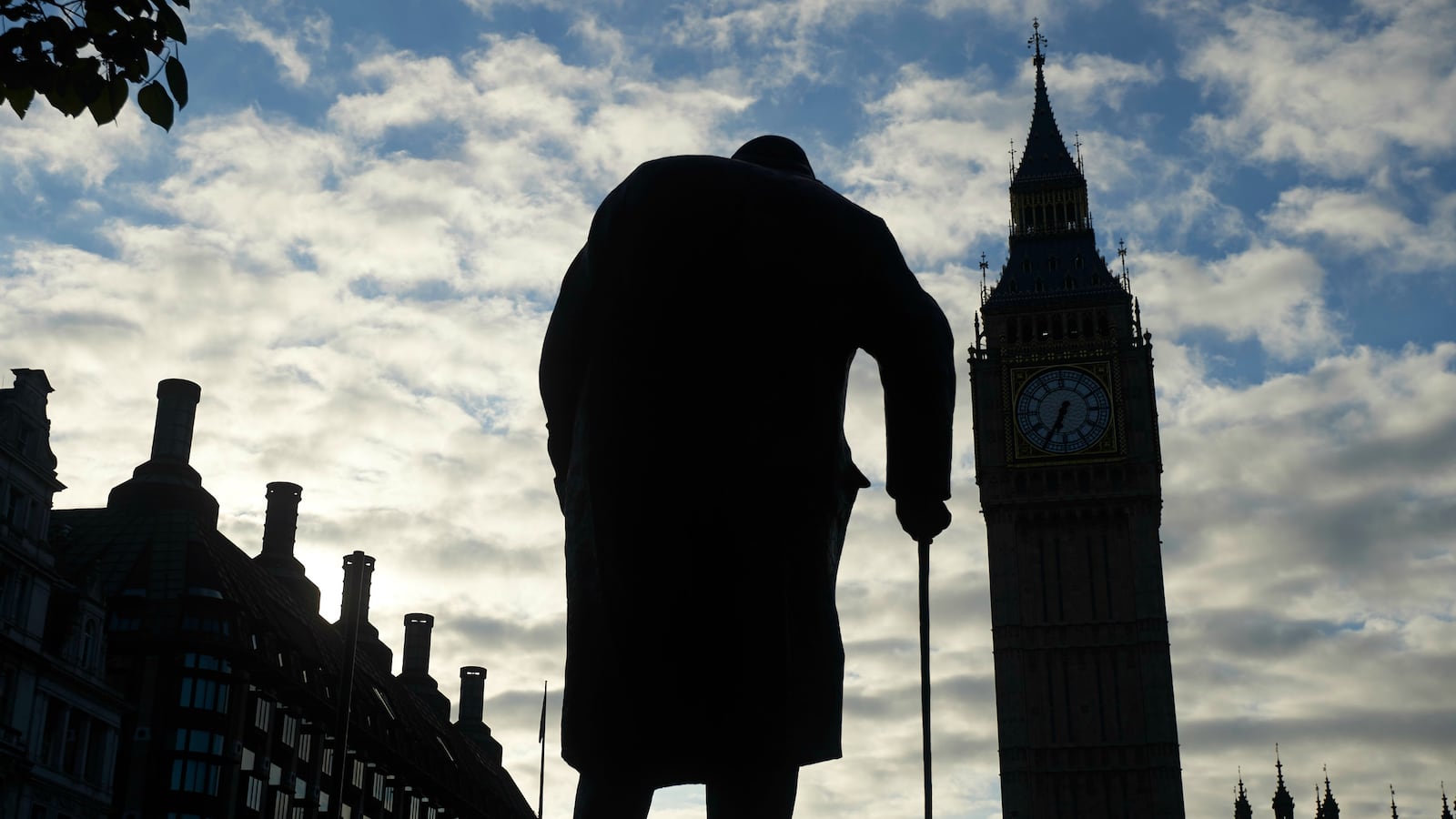A half century after his death, Winston Churchill is having another moment (not that he ever ceased having one). On the heels of the 2016 TV series The Crown (where John Lithgow portrays him) comes the Darkest Hour: a new film that focuses on Churchill’s leadership during the miraculous Dunkirk evacuation. There’s already buzz that Gary Oldman, the actor portraying this“ flawed but deeply passionate man,” might even win an Oscar.
But is this decades-long trend of hero-worship entirely justified? Churchill’s record of leadership is far more complicated than most Americans realize—and no, I’m not just talking about his bibulous, checkered record prior to becoming prime minister.
The architect of the disaster at Gallipoli in 1915 helped upset the international financial applecart by botching the job of fixing the price of gold. By 1931, he had been bounced from the Cabinet and was consorting with the radical ex-parliamentarian (and future fascist leader) Oswald Mosley. A young Churchill also toyed with the idea of eugenics, including the possibility of sterilizing the “unfit.”
I am more interested, however, in Churchill’s years as prime minister, when he heroically eschewed a negotiated peace with Hitler and, instead, rallied his tiny island nation to stand alone against Nazism. Fortunately for Churchill, this decision covers a multitude of sins.
In the pursuit of surviving what he rightly viewed as an existential battle against Nazism, Churchill contemplated using chemical warfare against German civilians. “I should be prepared to do anything that would hit the enemy in a murderous place,” he wrote privately in July 1944. “I may certainly have to ask you to support me in using poison gas. We could drench the cities of the Ruhr and many other cities in Germany… let us do it one hundred per cent.”
Another plan, called Operation Vegetarian, called for feeding German cattle anthrax cakes, in an attempt to both kill their food and spread the bacterium to the civilian population.
Winning World War II required strange bedfellows and moral flexibility. As part of Operation Keelhaul, Churchill signed off on the forced repatriation of peoples (many of whom had never been Soviet citizens) to the Soviet Union. He “turned over to the Soviet command the Cossack corps of 90,000 men. Along with them he also handed over many wagonloads of old people, women, and children,” wrote Solzhenitsyn in The Gulag Archipelago.
His words, too, might shock modern ears. It might not be fair to judge a man of a different era by our more enlightened standards, but some of his rhetoric—calling Hindus a “foul race”, for example—would be more than just politically incorrect today. When it came to immigration, according to Stanley Baldwin, Churchill thought “a good campaign slogan would be 'Keep England White.’” And, of course, there was his hatred of Gandhi.
For those who lament the decline of British hegemony, it’s also fair to point out that Churchill’s career begins with the sun never setting on the British Empire, and ends with England being eclipsed by the Soviets and the New World.
This is, admittedly, a contrarian take on a man considered the “person of the 20th century.” But it is needed. History class and Hollywood do a remarkably poor job of discussing historical figures as three-dimensional people. So what is the lesson we should actually learn from Churchill?
As Adam Kirsch put it in 2008, “The reason why he came back from exile to be named prime minister in May 1940, England's darkest hour, was not because he was a perfect statesman but because he was indomitable.”
Indeed, he was. And since few of us are destined for greatness or sainthood, it turns out that the real Churchill, warts and all, is the more realistic role model to which we—made from the crooked timber—can all aspire.
Churchill made grave errors, was wrong about many things, and had serious moral deficiencies. And yet, he still persevered to beat back Nazism and fascism. His mantra “Never surrender!” is pretty good advice for anyone hoping to overcome adversity during or after our darkest hours.
Despite all his failings, he is still a hero, albeit a flawed one. Churchill is proof that complicated and imperfect people can still do remarkable things—that, in fact, we desperately need them.





